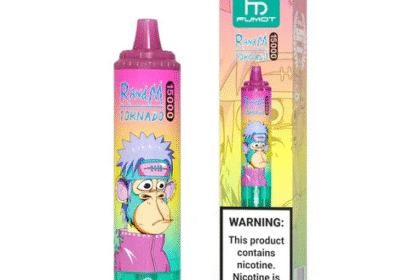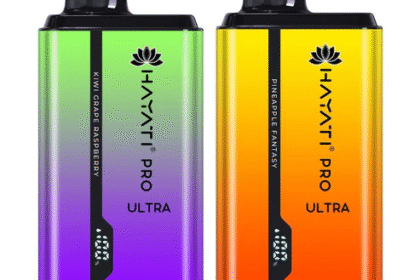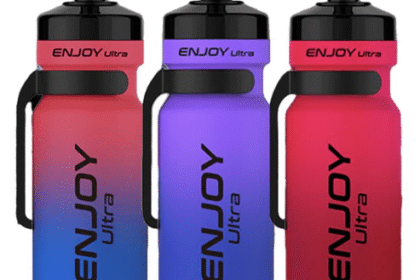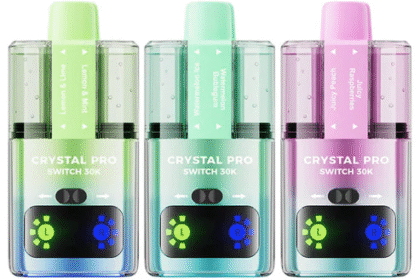In industries like food processing and pharmaceuticals, cleanliness, corrosion resistance, and durability are non-negotiable. Every material used in these highly regulated sectors must meet strict hygiene standards, resist contamination, and maintain performance under constant exposure to chemicals, moisture, and high temperatures. One material that perfectly fits these demands is Stainless Steel 304 Pipes.
Known for their impressive resistance to corrosion, ease of cleaning, and long service life, Stainless Steel 304 Pipes have become a staple in food and pharmaceutical manufacturing facilities. In this blog, we’ll explore why these pipes are so widely used in these industries, what benefits they offer, and how they support safe and efficient operations.
What Are Stainless Steel 304 Pipes?
Stainless Steel 304 Pipes are made from grade 304 stainless steel, the most commonly used austenitic stainless steel alloy. This grade contains approximately 18% chromium and 8% nickel, which provide excellent resistance to oxidation and corrosion. The material is non-magnetic, highly durable, and easy to fabricate or weld, making it ideal for demanding industrial applications.
These pipes come in a range of thicknesses, diameters, and finishes, allowing them to be used in various roles—from transporting liquids to structural applications within hygienic facilities.
Why Stainless Steel 304 Pipes Are Essential in the Food Industry
The food processing industry must adhere to rigorous hygiene and safety standards. Every component that comes into contact with food must be easy to clean, resistant to bacterial growth, and chemically inert. Here’s how Stainless Steel 304 Pipes meet those standards:
1. Hygienic Surface
Stainless steel has a smooth, non-porous surface that resists the accumulation of food particles and bacteria. This makes Stainless Steel 304 Pipes an excellent choice for transporting liquids, semi-solids, and even gases within a food facility. Their surface can be easily cleaned and sterilized, reducing the risk of contamination.
2. Corrosion Resistance
In food manufacturing, exposure to cleaning agents, organic acids, and moisture is constant. Stainless Steel 304 resists corrosion caused by these substances, preventing pipe degradation, leaks, or contamination over time. This durability makes it ideal for long-term use in wet environments such as dairy, beverage, or meat processing plants.
3. Thermal Resistance
Many food processing systems involve extreme temperature variations—from boiling water to freezing temperatures. Stainless Steel 304 Pipes maintain structural integrity under high heat and won’t become brittle when exposed to cold, ensuring safe and reliable operation throughout the production cycle.
How Stainless Steel 304 Pipes Benefit Pharmaceutical Manufacturing
The pharmaceutical industry demands even stricter standards than food production. In this field, sterility, purity, and compliance with regulations such as FDA and GMP (Good Manufacturing Practices) are critical. Here’s how Stainless Steel 304 Pipes support these standards:
1. Chemical Compatibility
Pharmaceutical manufacturing often involves the transfer of solvents, active ingredients, and highly reactive chemicals. Stainless Steel 304 is compatible with a wide range of pharmaceutical-grade substances and resists both oxidation and leaching, ensuring that no harmful contaminants are introduced into the product.
2. Cleanroom Standards
In sterile environments, such as cleanrooms, even the smallest contamination can ruin a batch of medicine. The smooth surface and cleanability of Stainless Steel 304 Pipes make them suitable for installation in aseptic processing areas. They can also be electropolished for ultra-clean applications.
3. Sterilization Capability
Stainless steel can withstand repeated sterilization cycles using steam, high-pressure cleaning, and chemical disinfectants. Unlike plastic or lower-grade metals, Stainless Steel 304 Pipes won’t warp, degrade, or release toxins when sterilized, making them ideal for reusable and long-term applications in pharmaceutical environments.
Common Applications in Food and Pharma Plants
In Food Plants:
-
Transporting milk, juice, or liquid ingredients
-
Beer brewing and beverage processing
-
Cooking oil or syrup pipelines
-
Steam or hot water lines
-
Wash-down and sanitation systems
In Pharmaceutical Plants:
-
Clean-in-place (CIP) and steam-in-place (SIP) systems
-
Water-for-injection (WFI) pipelines
-
Active pharmaceutical ingredient (API) transfer lines
-
Solvent and chemical transport
-
High-purity water systems
In both industries, Stainless Steel 304 Pipes provide reliability and compliance with safety regulations, while maintaining high performance under continuous use.
Key Advantages of Stainless Steel 304 Pipes
Let’s summarize the main reasons manufacturers in the food and pharma sectors continue to choose these pipes:
-
Excellent corrosion resistance against a wide range of substances
-
Smooth surface that is easy to clean and sanitize
-
Non-reactive with food and pharmaceutical substances
-
High strength and resistance to pressure and temperature changes
-
Long lifespan with minimal maintenance required
-
Environmentally friendly as stainless steel is 100% recyclable
These benefits make Stainless Steel 304 Pipes a long-term solution for manufacturers aiming to reduce downtime, prevent contamination, and improve overall production efficiency.
Compliance with Industry Standards
Another major factor behind the popularity of Stainless Steel 304 Pipes is their compliance with global standards for hygiene and safety. These pipes typically meet:
-
ASTM A312: Specification for seamless, welded, and heavily cold worked austenitic stainless steel pipes
-
3-A Sanitary Standards (for dairy and food industries)
-
FDA requirements for food contact surfaces
-
ASME BPE (for bioprocessing equipment in pharmaceutical industries)
Their widespread acceptance in these regulatory frameworks adds another layer of confidence for manufacturers using these pipes in critical processes.
Choosing the Right Stainless Steel 304 Pipes
When selecting stainless steel piping for your facility, consider the following:
-
Wall thickness and pipe size for pressure requirements
-
Finish type (e.g., polished, annealed, or electropolished) based on hygiene needs
-
Welding and connection methods that align with cleanroom or food-grade standards
-
Supplier quality and adherence to specifications
Working with a reliable stainless steel manufacturer or supplier ensures you receive pipes that meet industry benchmarks and perform reliably in your application.
Final Thoughts
From transporting raw ingredients in a food processing plant to delivering high-purity water in a pharmaceutical facility, Stainless Steel 304 Pipes prove to be indispensable. Their strength, corrosion resistance, hygienic properties, and ease of maintenance make them a preferred choice across both industries.
With rising expectations for product safety and regulatory compliance, investing in high-quality stainless steel piping is more important than ever. Stainless Steel 304 Pipes provide manufacturers with peace of mind knowing their systems are equipped with materials that perform exceptionally under the most demanding conditions.




